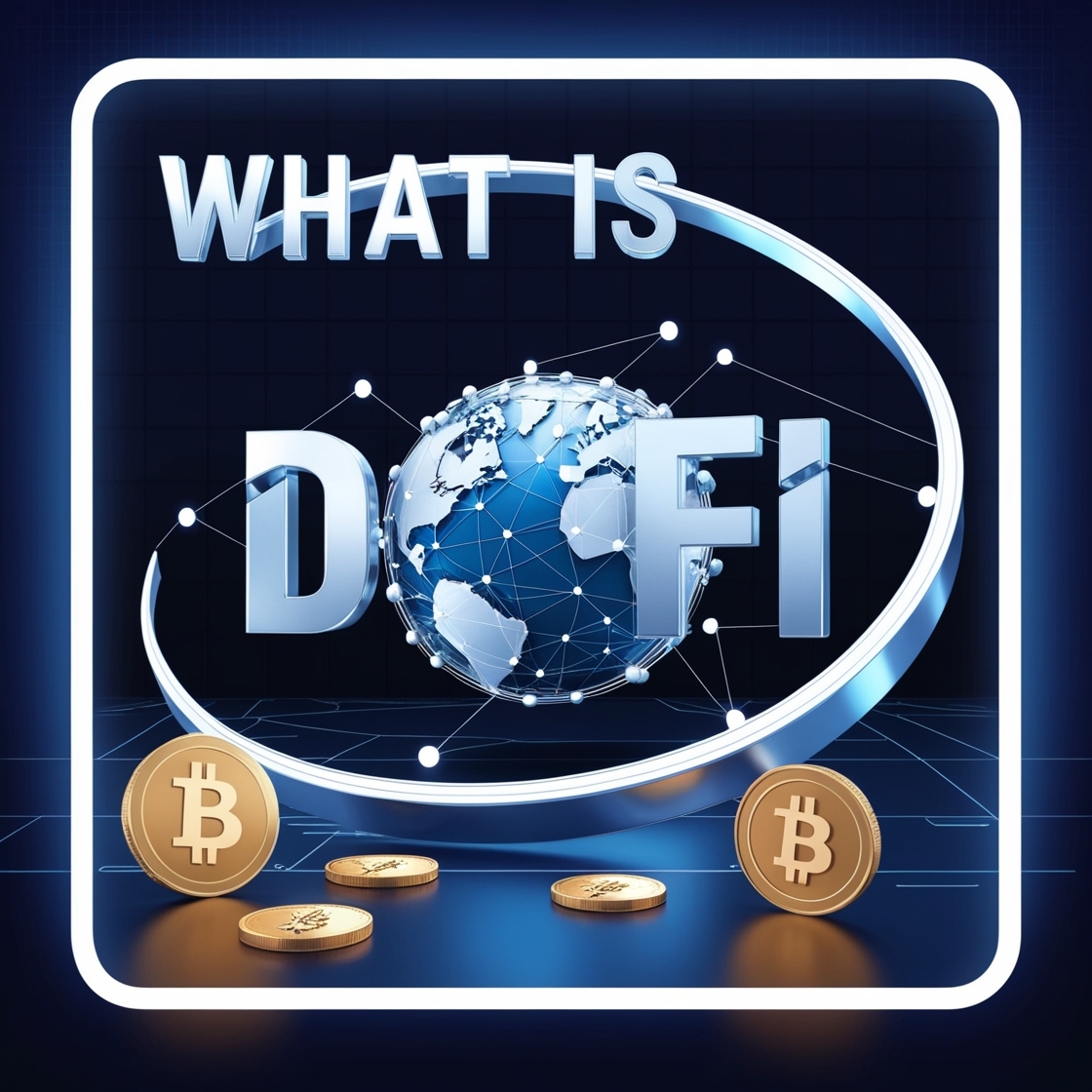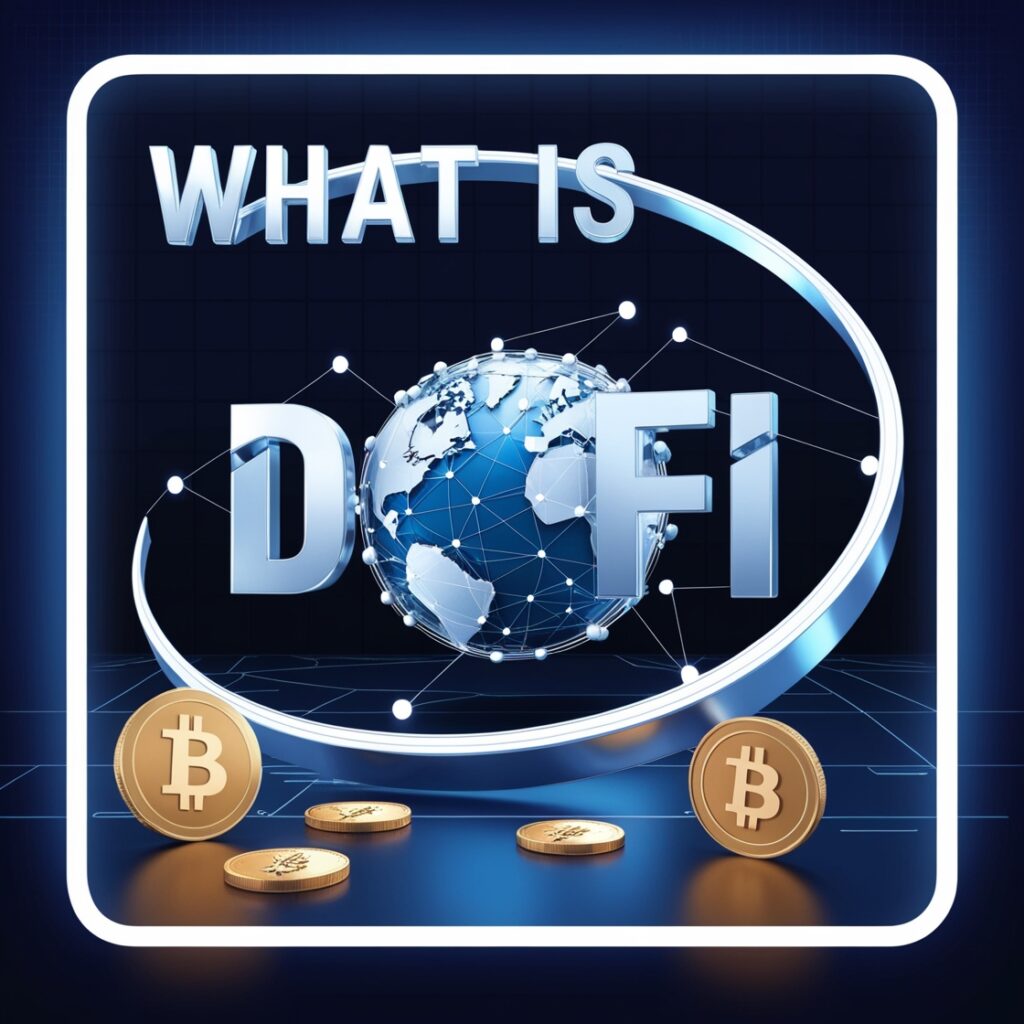
The concept of DeFi (Decentralized Finance) has disrupted traditional financial services as we know it in the crypto space. If you’ve ever wondered what DeFi is and how it works, think of it as a crypto bank powered by smart contracts. DeFi eliminates intermediaries like banks, allowing you to lend, borrow, trade, and earn interest—all directly on the blockchain.
DeFi vs. Traditional Banking: A Comparison
To understand DeFi better, let’s compare it with traditional banking systems:
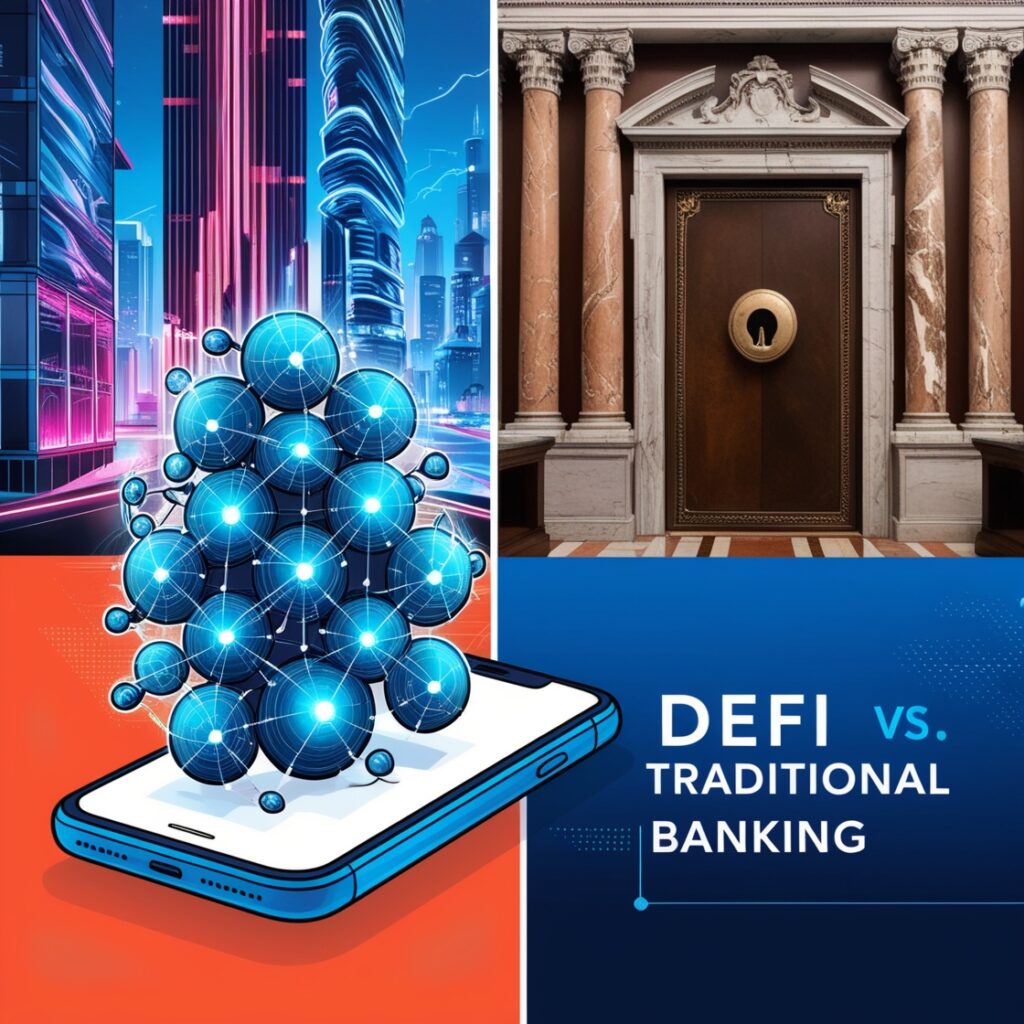
| Feature | Traditional Bank | DeFi (Decentralized Finance) |
|---|---|---|
| Governance | Centralized by authorities | Decentralized on blockchain |
| Control | Controlled by the bank | Controlled by smart contracts |
| Savings Options | Fixed Deposits (FD), Recurring | Staking, Liquidity Mining |
| Loans | Collateral-based loans with high KYC | Crypto-collateralized lending |
| Interest Rates | Bank-determined, often low | Market-driven, often higher |
| Accessibility | Restricted by geography & banking hours | Global, 24/7 accessibility |
How Does DeFi Work?
DeFi operates on blockchain networks like Ethereum, Binance Smart Chain, and Solana, using smart contracts to automate transactions. Smart contracts are self-executing codes that ensure transparency and eliminate the need for intermediaries.
Example Use Case:
Let’s say you need to gain intrigued on your crypto. Instead of depositing money in a bank for a Fixed Deposit (FD), you can stake your crypto assets in a DeFi protocol like Aave or Compound to earn significantly higher returns.
Advantages of DeFi
DeFi offers numerous advantages over traditional financial systems. Here’s a breakdown of some of its major advantages:
- Pseudonymous Transactions
DeFi enables users to transact without revealing their real-world identity. Instead of relying on personal data, transactions are secured by blockchain addresses, ensuring privacy and reducing the risk of identity theft. - Transparency
Every transaction on a DeFi platform is recorded on a public blockchain, making it fully transparent and traceable. This eliminates hidden fees, reduces fraud, and fosters trust among users. - Cost Efficiency
By removing intermediaries like banks and brokers, DeFi significantly lowers transaction costs. Smart contracts automate processes, making financial services more affordable and accessible to everyone. - Open to All
DeFi platforms are globally accessible 24/7, with no need for bank accounts or credit checks. Anyone with an internet connection and a crypto wallet can participate, promoting financial inclusion for unbanked populations.
DeFi Features and Benefits
DeFi platforms offer a wide range of features, making them a viable alternative to traditional banking:
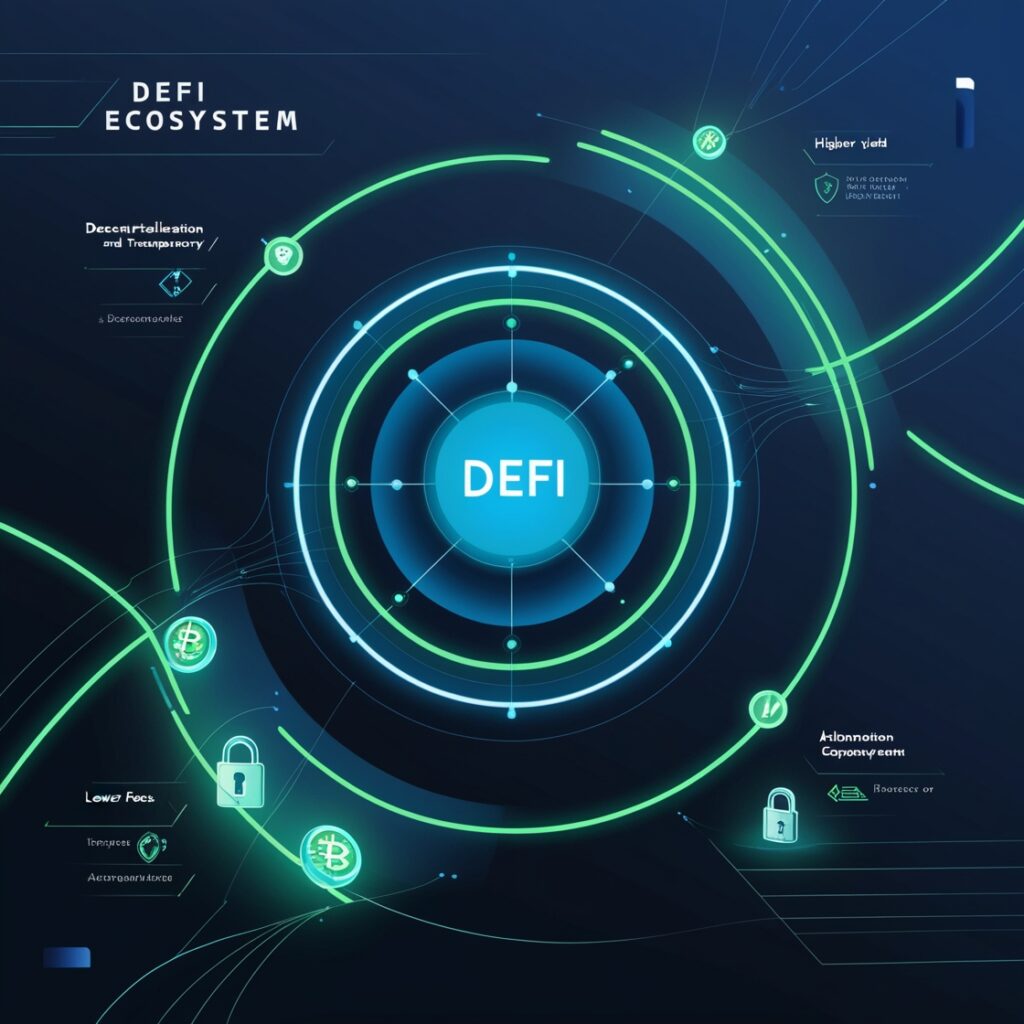
- Lending and Borrowing: Users can lend crypto to earn interest or borrow assets by providing collateral.
- Staking: Lock your crypto assets in DeFi protocols to earn rewards.
- Yield Farming: Maximize returns by providing liquidity to decentralized exchanges.
- Decentralized Exchanges (DEXs): Trade cryptocurrencies directly without intermediaries (e.g., Uniswap, PancakeSwap).
- Stablecoins: Pegged to fiat currencies, stablecoins reduce volatility while maintaining the benefits of blockchain.
DeFi vs. Centralized Finance (CeFi)
While centralized finance relies on intermediaries, DeFi is built on transparency and automation:
- CeFi: Banks and centralized exchanges hold custody of your funds and control transactions.
- DeFi: You retain custody of your funds, and transactions are governed by code on the blockchain.
DeFi essentially democratizes financial services, empowering individuals to control their own wealth.
Top DeFi Platforms You Should Know
If you’re interested in exploring DeFi, here are some of the most popular platforms:
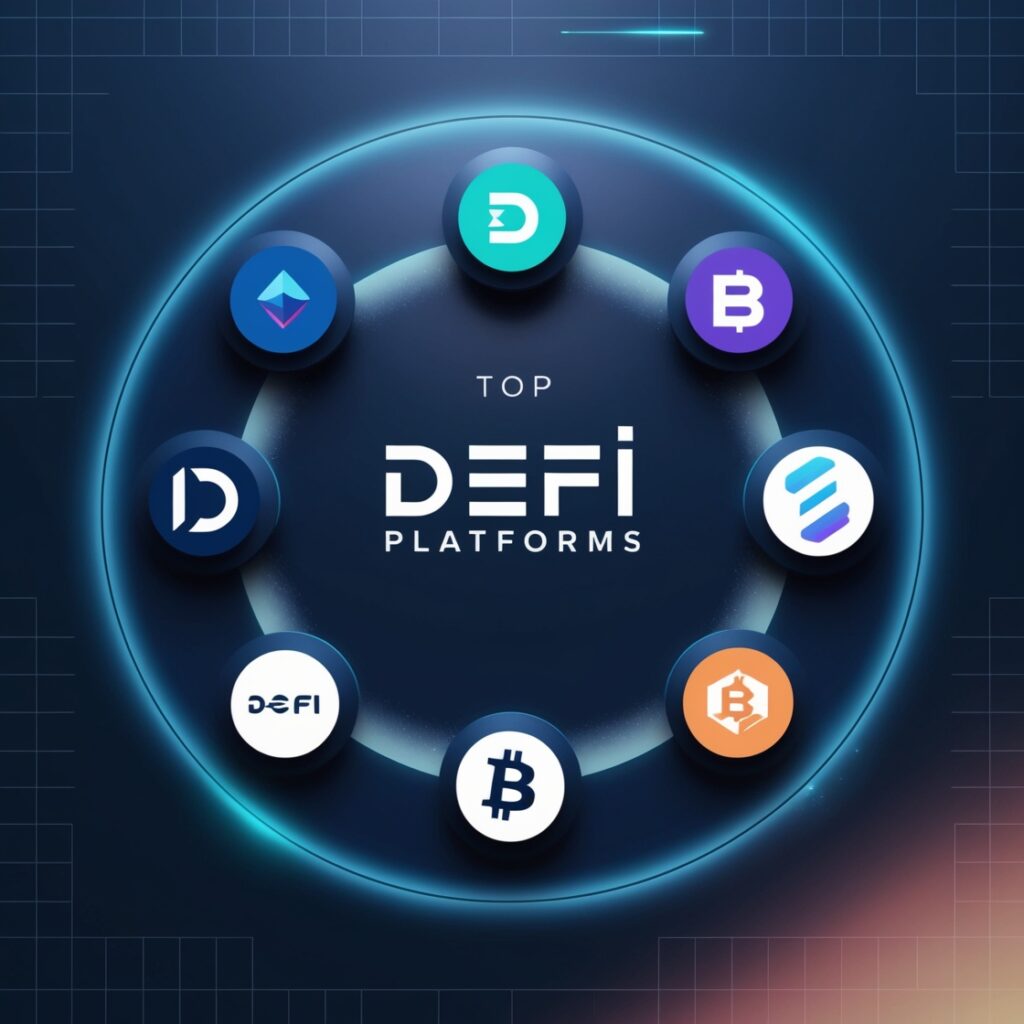
- Aave: Focuses on crypto lending and borrowing with unique features like flash loans.
- Compound: A platform where users can lend or borrow cryptocurrencies while earning interest.
- Uniswap: A decentralized trade that permits clients to exchange tokens straightforwardly.
- PancakeSwap: A DEX on Binance Smart Chain with lower transaction fees.
- Yearn Finance: Specializes in yield farming and optimizing returns.
DeFi Challenges
Despite its benefits, DeFi isn’t without risks:
- Smart Contract Vulnerabilities: Hackers can exploit bugs in the code.
- Volatility: Crypto prices can be highly unpredictable, affecting DeFi investments.
- Regulatory Uncertainty: Governments still investigating DeFi and find how to regulate.
Always do your own research (DYOR) before diving into DeFi platforms.
Why DeFi Is the Future of Finance
DeFi has introduced a level of financial inclusion that traditional systems struggle to achieve. Whether you’re in a remote village or a bustling city, DeFi provides:
- Access to financial tools without a bank account.
- Transparency with blockchain technology.
- Higher earning potential through staking and lending.
As the technology evolves, DeFi could replace many of the services we rely on today, making finance more accessible and efficient.
Start Exploring DeFi Today!
If you’re ready to unlock the potential of DeFi, begin by exploring platforms like Aave, Uniswap, or Compound. Earn rewards, grow your crypto portfolio, and experience a financial system that works for everyone, everywhere.
Want to stay updated on the latest DeFi news and opportunities?
👉 Join our Telegram channel for exclusive airdrops and crypto tips!
Or visit our Airdrops section in the header for exciting crypto rewards!
